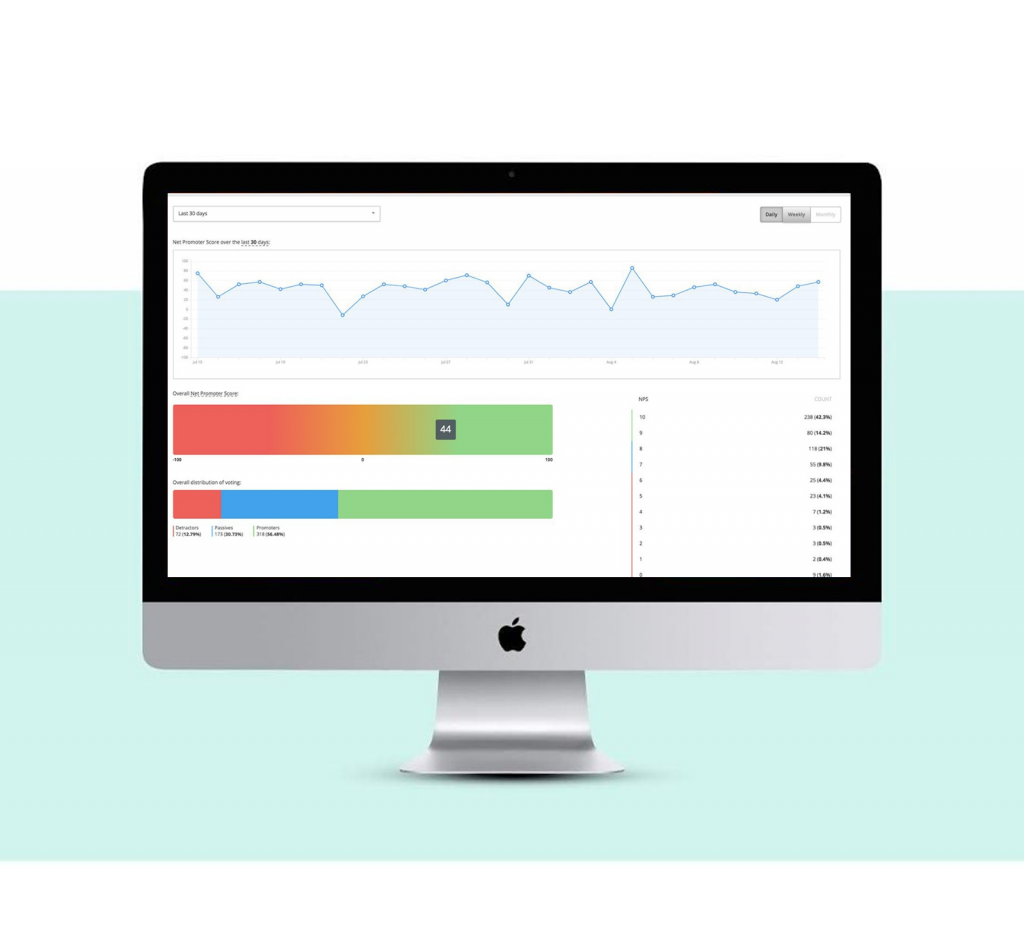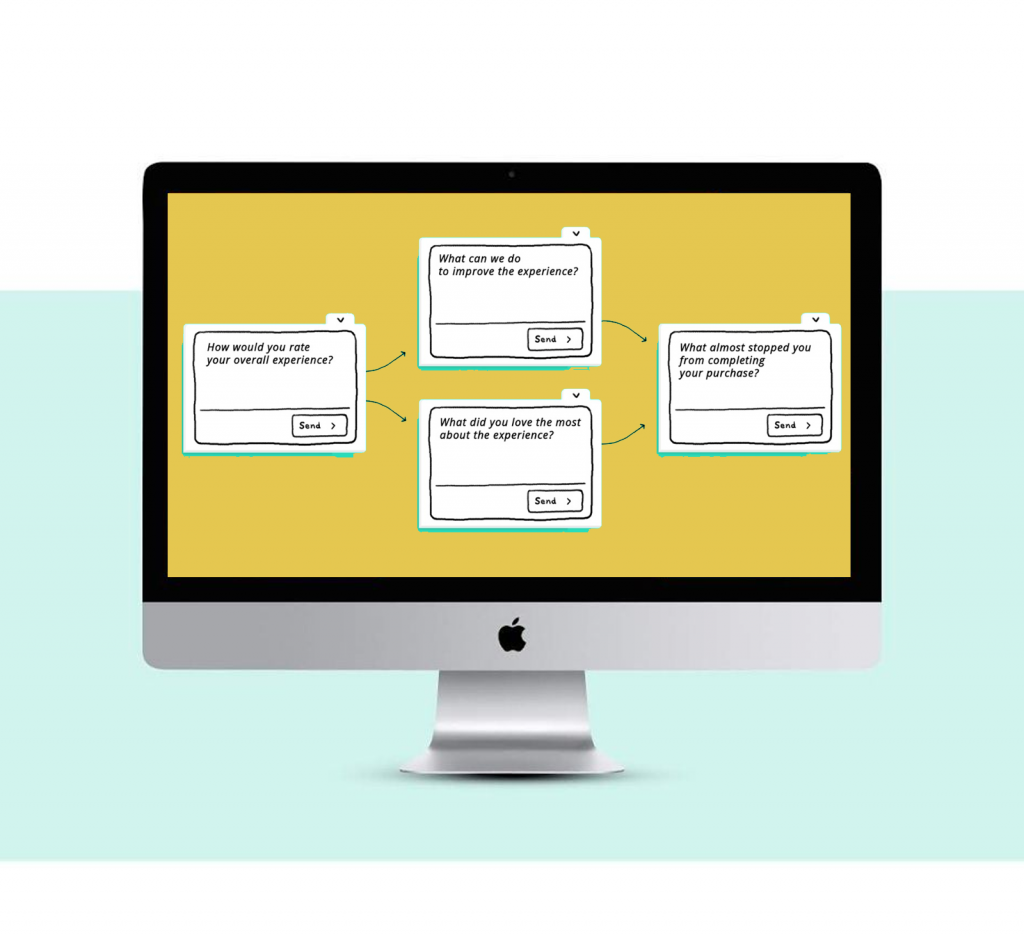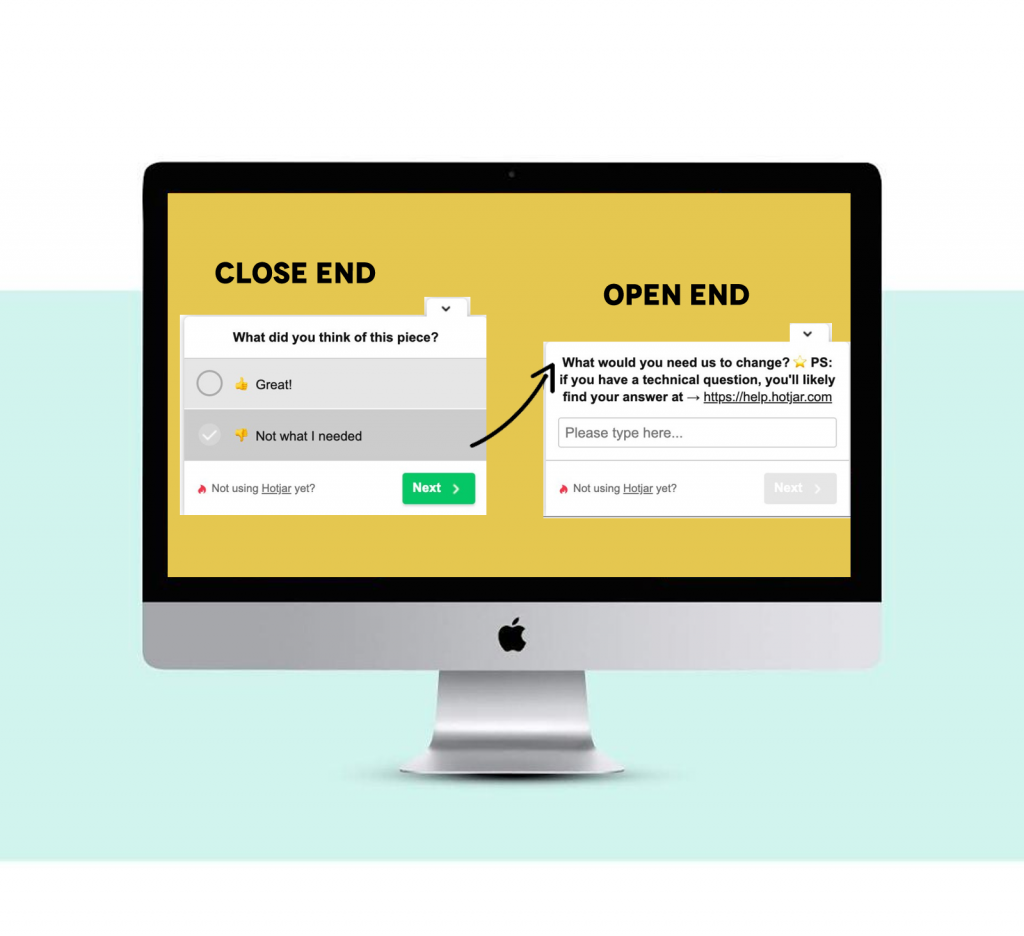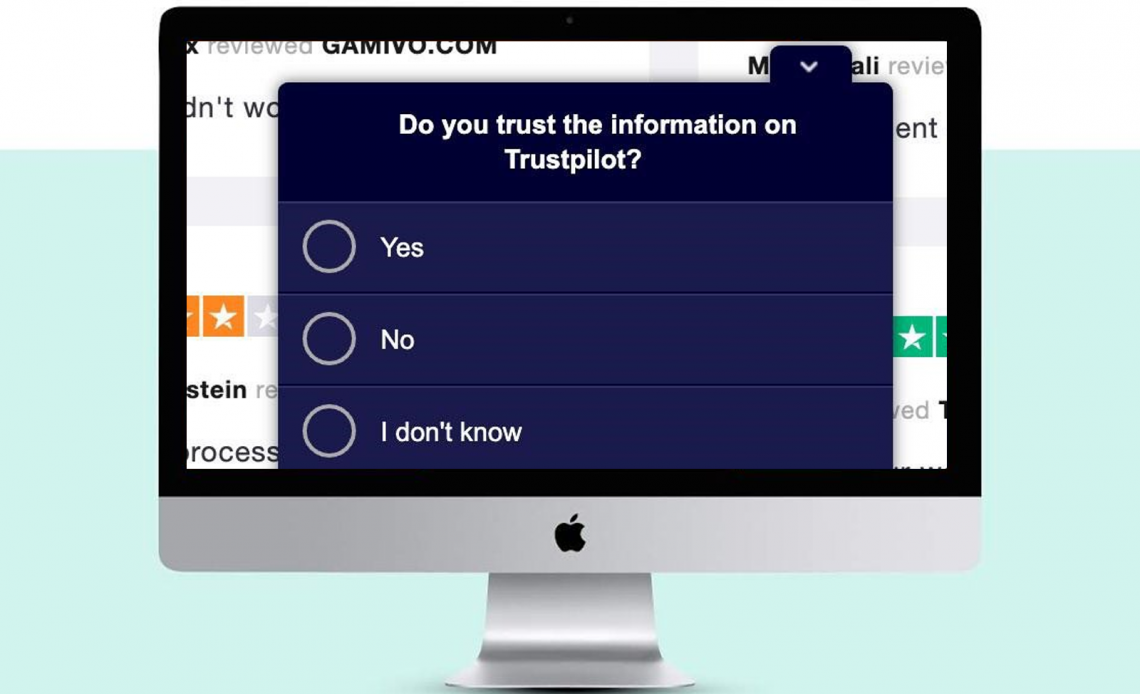A survey questionnaire consists of many categories of questions. Amongst the different types of questions, open-ended questions and close-ended questions come under a category. While writing survey questions you may include both open-ended as well as close-ended questions. When you are conducting a field survey or interview, it is effective to ask open-ended questions. It gives the respondents the liberty to answer in their own way and you get more additional details. Whereas when you want someone to choose from a few things or restrict their answer to definite options, you can go for close-ended questions.
What are open-ended questions?
An open-ended question is the type of question that does not restrict the answer to specific options. The respondent can answer however he wants and as much as he wants. These types of questions are mainly useful for the qualitative research method.
An example of such a question is, “How do you feel about the involvement of technology in every sphere of our lives?”
In this question, the person whose responses can write in any way he wants and express his thoughts completely.

Advantages of open-ended questions
- It gives the liberty to the respondents to answer freely.
- Answers are not restricted to only a definite one.
- Through this question, the researcher can better understand the respondent and his thoughts.
- You can gain more information from it or additional beneficial information.
- The researcher does not need to make relatable choices for responses. Making multiple choice questions need a great deal of thought so that respondents can relate to them and answer.
- The researcher does not need to quantify or statistically describe the data in many cases.
Disadvantages of open-ended questions
- Since these questions demand descriptive answers, it might become time-consuming to answer these. This is the most prominent disadvantage of open-ended questions.
- You cannot quantify the data or statistically represent the responses. This is another big disadvantage of open-ended questions.
- Each response generally requires individual analysis. It is hard to analyse all the responses together.
- One more disadvantage is less response rate. Respondents may be reluctant to answer descriptive questions.
Fynzo Survey: Unlimited surveys, unlimited responses, 99% of the features are forever free.
Create a free survey with the easiest online survey creator.
What are close-ended questions?
Close-ended questions are the ones where you have to answer in a certain manner and from the options given. The respondent needs to choose an answer from the options that are provided. These types of questions are mainly useful for collecting and analysing quantitative data.
An example of a close-ended question is, “Do you think environmental studies are important in educational institutions?”
A) Yes
B) No
C) Maybe

Advantages of close-end questions
- The greatest advantage of close-end questions is that you can view the responses statistically. You can calculate a number of responses towards an option and draw inferences.
- These are less time-consuming for the respondents to answer since they simply need to choose an option.
- The researcher can evaluate all responses to a question together.
- The biggest advantage is you are likely to get more responses because these are quick to answer.
- Respondents do not need to write long and descriptive answers.
Disadvantages of close-end questions
- The biggest disadvantage of close-end is It does not give the respondents the liberty to answer freely however they want to.
- Respondents need to restrict their answers and choose only from the multiple options given.
- The thoughts of the respondent cannot be completely displayed through open-end questions.
- The researcher has to make choices for the answers that the respondents can relate to.
- The researcher will not be able to extract additional information, that might be beneficial.
Comparison between Open-ended Questions vs Close-ended Questions
There are different aspects in which each type of question proves to be more useful and beneficial for the researcher.

Thoughts of the respondent: An open-end question can better capture the thoughts of the respondent than a close-ended one. This is because he describes his opinion freely. For conducting social research, it is important to know the thoughts properly.
Statistical analysis: In many types of research, it becomes necessary to track the probability of something as well. This is when responses are calculated and the percentage of the sample with a response is derived. Close-end questions are more effective for this than open-end ones.
Making questions: It is easier to make open-end questions since you do not need to think of relatable choices. Whereas in close-end questions, you need to make the questions as well as the choices of answers that a respondent might have.
Data analysis: Data analysis is easier for closed-end questions. You can simply calculate the number of responses to each question. Whereas in open-end questions you have to analyze each and every answer from every respondent. It becomes time-consuming as well.
Time consumption: Close-ended questions take time both to fill up as well as to analyze. Open-end questions take relatively lesser time both in analysis and response as well.

Conclusion
Both types of questions are beneficial in their own ways. An open-end question is useful for qualitative data collection. The close-end questions are useful for quantitative data collection. In order to get the best results and to carry on research successfully, it is best to use both types of questions. When you use both types of questions, you get to know the thoughts and opinions of the respondents. You get to calculate the number of responses for each option as well. So you get the advantages of both kinds of questions.
Fynzo Survey: Unlimited surveys, unlimited responses, 99% of the features are forever free.
Create a free survey with the easiest online survey creator.




